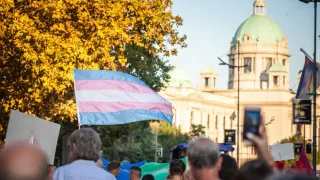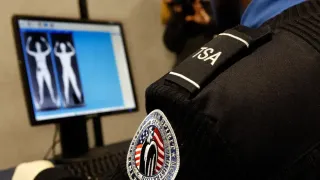
3 hours ago
Game, Set, Match: Cammie Woodman Serves Up a Legal Challenge—and a Win for Trans Athletes
READ TIME: 3 MIN.
The roar of a tennis crowd is electric, but for Cammie Woodman, the most deafening noise hasn’t come from the bleachers—it’s echoed from the halls of justice. In June 2025, Woodman, a transgender woman and passionate tennis player, filed a discrimination lawsuit against the Tennis League Network after being told she could not compete in women’s events, despite league assurances that trans players had participated elsewhere nationwide .
This week, a New York judge made headlines—and queer history—by allowing Woodman’s case to move forward, underlining that discrimination claims by transgender athletes have a place in the courts, not just in the court of public opinion .
For Woodman, tennis isn’t just a sport. It’s been a lifeline through her transition, a space where she could rally back against the world’s expectations, and, as she told Autostraddle, “feel at home in my body, on my terms” . When she joined the Tennis League Network earlier this year, it seemed like a match made in heaven—a place she could finally play openly as herself. Before signing up, she’d even checked with the league about trans inclusion, learning that other trans players had been welcomed in cities across the country, a detail that made the subsequent ban sting all the more .
Woodman’s exclusion from competition wasn’t just a personal blow; it became a flashpoint for broader questions about transgender participation in sports and the patchwork of policies governing inclusion. According to court filings, Woodman alleges that her exclusion was based on her gender identity, in violation of New York’s robust anti-discrimination laws, which protect against discrimination on the basis of gender identity in public accommodations—including athletic leagues .
After months of procedural wrangling, the court’s recent decision means Woodman’s claims will be heard on their merits—a crucial procedural victory that signals growing judicial recognition of trans athletes’ rights. Legal observers note that such cases are increasingly serving as bellwethers for LGBTQ+ equality, especially as anti-trans sports bans proliferate across the U.S. .
The impact of Woodman’s fight is larger than any single tennis match. For the LGBTQ+ community, especially trans athletes, her case is a powerful reminder that fair play isn’t just for the scoreboard—it’s for our very presence in public life. In a year when statehouses and school boards have put trans athletes in the crosshairs, Woodman’s resolve strikes a chord: “Every time we take the court, we show the world that trans people belong. Not just in sports, but everywhere,” she told Autostraddle .
Her story is also a lesson in queer resilience—the kind that turns exclusion into activism, and isolation into solidarity. Across social media, LGBTQ+ athletes and allies have rallied behind her, sharing messages of support and using #LetCammiePlay to demand fair treatment for all trans competitors.
With the court’s go-ahead, Woodman’s case will now move into discovery and, potentially, trial—a process that could set a new precedent for trans inclusion in amateur and semi-professional sports, not just in New York but nationwide . Legal experts are watching closely, noting that while many cases have fizzled at early stages, the willingness of courts to entertain the merits of trans discrimination claims marks a pivotal shift.
For now, Woodman is keeping her eyes on the ball—and on the bigger picture. “Tennis saved my life,” she said. “If I can make it easier for the next trans girl to pick up a racket and just play, then every hard day has been worth it” .
Woodman’s story is a rallying cry. As queer folks, our joy and right to belong aren’t up for debate—on the court, in the locker room, or anywhere else. Every time an LGBTQ+ athlete steps onto the field or the court, it’s an act of resistance and pride.
The next serve is coming. The world is watching. And if history is any guide, the queer community will be there—cheering from the stands, organizing in the streets, and fighting for a world where everyone can play.






